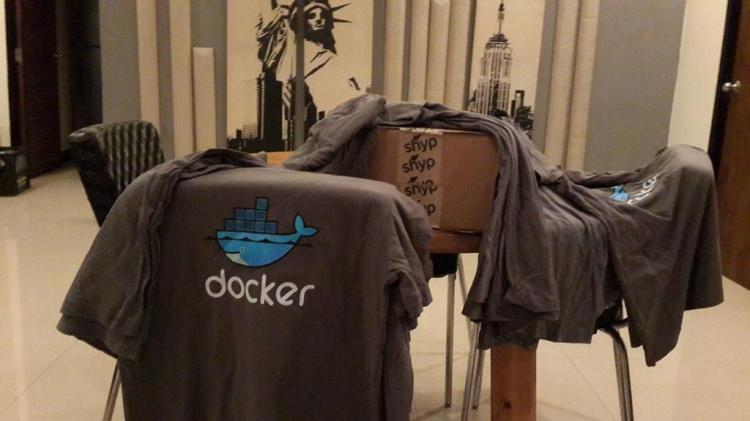Docker, the startup that rose to prominence by pushing container technology for wrapping up application code, today announced that it has acquired Conductant, a secretive early-stage startup founded by people with experience building software to automate the process of deploying code at scale.
Bill Farner, cofounder and CEO of Conductant, formerly worked at Twitter and Google and has the special distinction of being the creator of the Apache Aurora open-source project. Aurora is a scheduler that can deploy workloads in association with the Apache Mesos software. Mesos has picked up some adoption, as have Docker’s open-source technologies, but there’s one startup that has been particularly focused on commercializing Mesos, and that is Mesosphere, which is considered a Docker competitor.
Mesos, Docker, and Kubernetes are seen as modern technologies for developing and deploying software more quickly and efficiently than can be done with more traditional virtual machines.
The Docker team sees potential in integrating certain parts of Aurora into the Docker software. Docker founder and chief technology officer Solomon Hykes explains in a blog post:
One very exciting possibility is to integrate Aurora with Docker Swarm to form a powerful large-scale web operations stack. Swarm’s goal is to provide robust, standardized primitives for deploying any distributed application, on any infrastructure, at any scale. This makes it an ideal standard base layer to scale all kinds of applications, from databases to stateless web workers, scientific computing or big data pipelines. In contrast, Aurora is optimized for the specific needs of large-scale consumer apps reaching hundreds of millions of users, and developed with a bleeding edge architecture and methodology. We believe that in many use cases, a stack combining Docker Swarm and Aurora could democratize the battle-tested Twitter operations model. Of course, not every application is a good fit for Aurora, and it will remain completely optional for Docker users – and vice-versa. By making two of the most popular open-source infrastructure projects interoperate better, we believe both communities will benefit.
Not much is known about Conductant, which started last year. The team — comprising Farner, David Chung (formerly of Zynga and Google), and John Sirois (formerly of VMware, Google, and Twitter) — are becoming part of Docker’s infrastructure group.
San Francisco-based Docker raised a $95 million funding round last year at a reported billion-dollar valuation.
Terms of the deal weren’t disclosed. Previous Docker acquisitions include Tutum and Unikernel Systems.
VentureBeat's mission is to be a digital town square for technical decision-makers to gain knowledge about transformative enterprise technology and transact. Learn More

